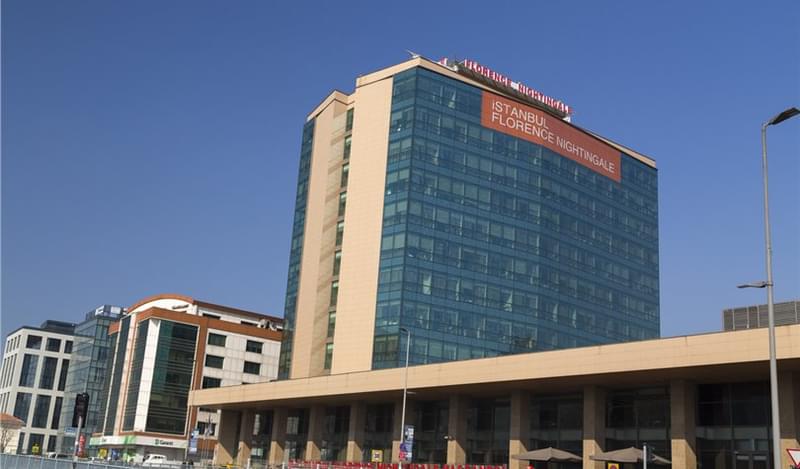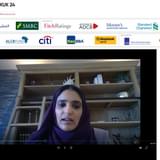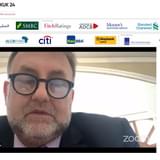Bonds & Loans: Can you give us a sense of the company’s key strategic focus areas over the next 6-12 months?
Burcu Öztürk: We are operating in the healthcare sector, which perhaps distinguishes us from other companies and sector sin Turkey – we are more defensive by nature. Healthcare tends to continue performing well, even during times of economic downturn. That said, we haven’t been as negatively impacted from an operations and revenue perspective as others.
Over the past four years, we have opened between two and three new hospitals annually. Our strategy for the next 6-12 months will see us continue to open up to greenfield hospitals, but since the election and the ensuing volatility in the market, we have held back plans to open up any new hospitals.
Bonds & Loans: What are the Treasury’s key priorities over the next 6-12 months?
Burcu Öztürk: We secured a euro-denominated loan earlier this year, in part because of the high cost of funding in local currency, and the devaluation has made servicing this more challenging; we’ve had another syndicated loan in place since 2015, which includes some of the largest lenders in Turkey. About 40% of our debt costs are fixed-rate.
We also executed a large capital injection into the company earlier this year, and with that we have increased our overall open position, and our leverage dramatically decreased.
Maintaining a healthy balance sheet has helped us weather the turbulent market in Turkey. We have targeted a few hedging transactions and are still looking for alternatives to further protect our balance sheet. Turkish banks are in a difficult position as well, trying to price TRY-denominated loans fairly while targeting the right sectors. Over the past 4-5 months, the banking sector has been struggling, and we are trying to manage that. But our advantageous net leverage position means we aren’t as heavily impacted by some of these pressures.
Bonds & Loans: Between the cost side and revenue side of the business, what is the Treasury more focused on at the moment and why?
Burcu Öztürk: On the revenue side, we have seen a bit of an increase given the government’s recent mandate for higher fees on more recent projects, which has been helpful. The next six months will see us focus on the cost-side of our balance sheet, which means smart cost management. Ensuring our hospitals are running as cost-effectively as possible and making sure they are doing better from an EBITDA and productivity perspective. We will continue to focus on sustainable growth, but our focus on operations will be central to this.
Part of this means focusing more closely on the collections side, so making sure our billing and collections are matched with supplier payments. But our overall focus will be on the working capital side and working capital improvement, especially on EBITDA.
Investments are also key. We want to make sure we don’t deploy any new CAPEX this year and focus on effective management of existing assets.
Bonds & Loans: What is the biggest constraint or challenge facing the Treasury department at the moment?
Burcu Öztürk: Interest rates are our biggest constraint. Currently, we are looking at borrowing rates of roughly 26-27% for TRY-denominated long-term funding. That said, any kind of investment needs to take into account the exorbitant cost of long-term borrowing in Turkey, which was already challenging before inflation and interest rates rose to new heights.
Overall, if you look at the companies in Turkey, those with export revenues are in an advantageous position. We have some revenues denominated in hard currencies, and cashflows generated in US dollars and euros are fully sufficient to cover our interest and principal payments. Generally, banks seem to be more comfortable with companies that are generating hard currency revenues; it creates a natural hedge that is attractive in this environment.
Bonds & Loans: Given the environment in Turkey and the particular constraints on banks in the country, do you see more urgency around engaging with new pockets of investors?
Burcu Öztürk: If you look at our current financing source, we continue to draw down from our existing syndicated loan. The only other source we look at is the local bond market, which we tapped earlier this year. Over the next couple of months, we may look to issue in the local market again. If we were to look at other lenders, there are a range of government-backed banks that offer very favourable interest rates, and we would also consider participation loans or sukuk, again due to favourable pricing. But we aren’t near our syndicated loan limit, so will continue to use that as a source of funding when needed.
Bonds & Loans: What advice would you give to borrowers looking to come to market for the first time?
Burcu Öztürk: Working capital management is essential. If you are good at managing that and you can demonstrate this to lenders and investors, it’s easier to secure cost-competitive funding. The other factor to look out for is leverage ratios. Staying below a net debt to EBITDA multiple of 6X, for instance, will also help you demonstrate a healthy balance sheet, and would be advantageous as well. Having export revenues is also a huge advantage at the moment, so any borrower that falls into that category will likely find the windows for borrowing more open to them.
Burcu Öztürk will be presenting at the Bonds, Loans & Sukuk Turkey on the 6th and 7th November 2018, Shangri-La Bosphorus, Istanbul. View the full agenda and speaker list here.










